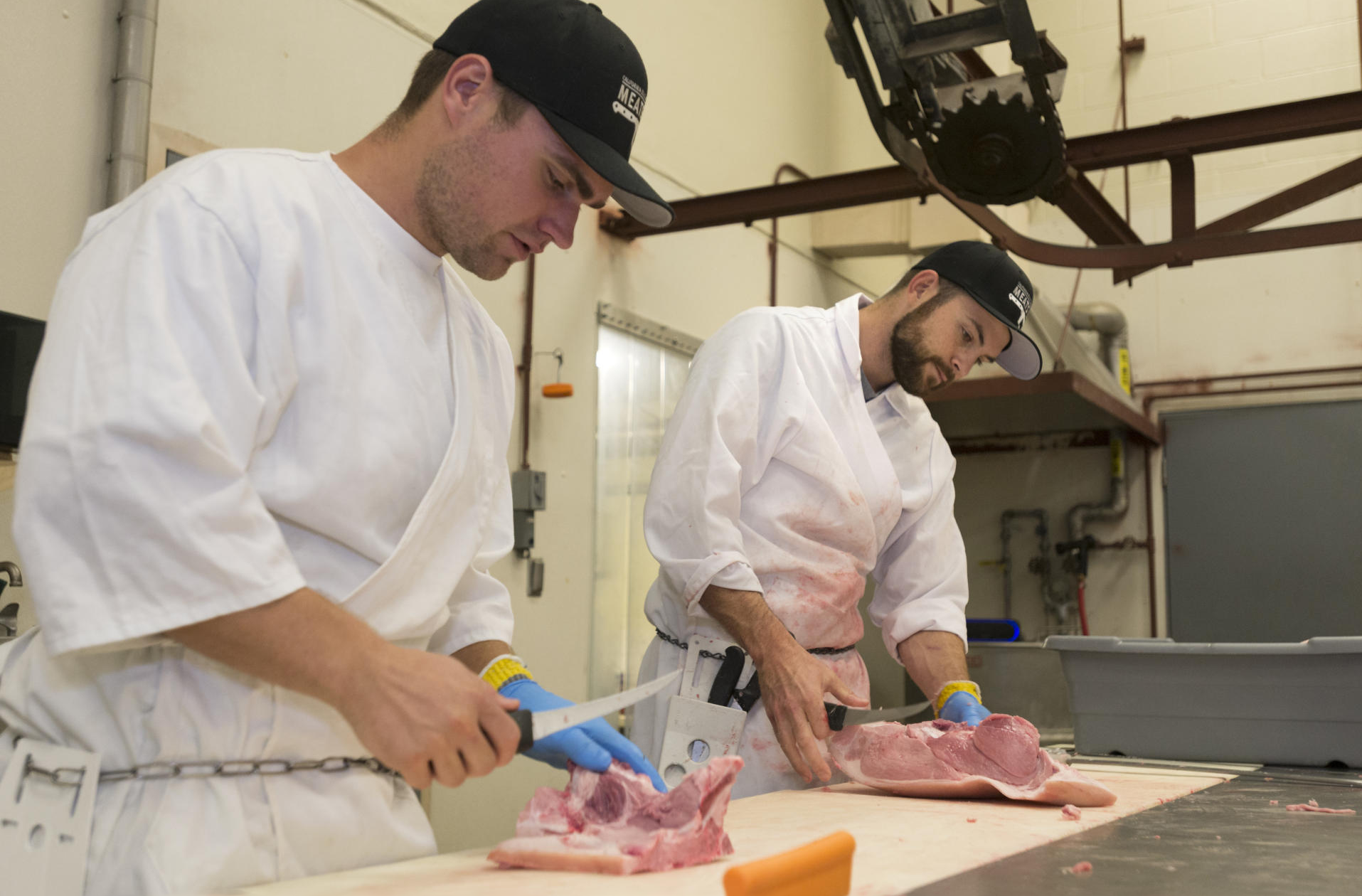How To: Stay Sharp at the Meat Counter

Each year, the University Farm Meats Lab processes 100,000 pounds of beef, pork, and lamb, opening its doors for public sale Thursday and Friday from 8 a.m.–5 p.m.
Under the supervision of the USDA and Meats Lab technician Haydn Clement (Agriculture, ’14; MS, Agriculture, ’16), agriculture students harvest, process, and sell products ranging from steaks, roasts, and bacon to a variety of sausages and award-winning smoked meats. Through labs and internships, students gain knowledge and skills while preparing for careers in the meat industry.
As inflation and food costs continue to set record highs, Clement and the students offer these tips to include meat as a part of your healthy diet.
Buy Local
We are fortunate to live in an area loaded with livestock. Whether you are on the hunt for grass-fed, grain-finished, or organic, a local producer is ready to meet your needs. Often, buying in bulk can bring huge savings, and it’s
always good to support local ranchers. Find a producer by talking to your butcher shop, visiting the farmers market, or doing a quick search online.
Don’t Buy Local
Your grocery store can also be a great place to shop. Meat today is raised, processed, and distributed in the most sustainable and humane way in our history, and grocers offer a wide variety with competitive pricing. Besides, that tri-tip you bought last week may still have come from cattle right here in the North State!
Bulk Up
You’re gonna need room in your freezer for this one. Save big by buying at the grocery store during sales. When pork butts fall below $1.25 per pound, buy a lot and freeze them for later use! Think about buying corned beef after Saint Patrick’s Day, ham after Easter, prime rib after Christmas, etc.
Butcher at Home
Looking to improve your home butcher skills? Whether whole chickens or rib roasts, cut costs by butchering them yourself. To get ready for a BBQ or just stock up, try buying whole pork loins and cutting them into 1-inch chops. With a few online tutorials and pieces of machinery, you can go even further by grinding your own burger or sausage, or even curing and smoking your own bacon.
Be Wary of Substitutes
Alternatives are always a good thing in life, and plant-based options are part of a quickly growing industry. While these new products may serve as a great alternative to a standard beef burger or other favorite food, all-natural meat remains one of the most sustainably produced—and delicious—foods on the planet and contains only one ingredient: meat.
In addition to his role as Meats Lab technician, Haydn Clement also sells prospect show pigs to local 4-H and FFA members and says he has strived to continue the Clement family tradition of faith, friendship, and an honest work ethic in all that he does. The University Farm’s fresh hot Italian sausage and smoked cottage bacon are his favorites!


